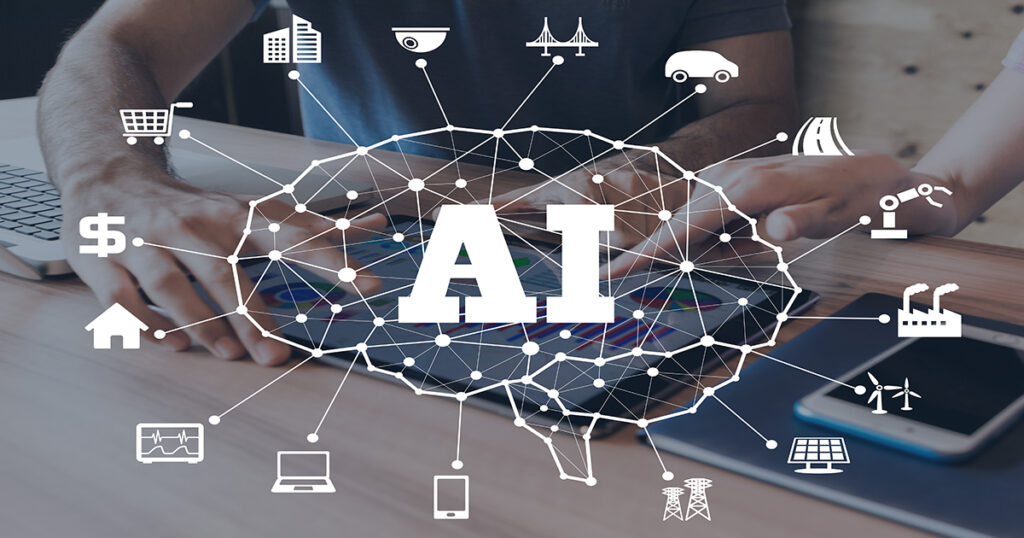It seems that no matter where you look or listen these days artificial intelligence, or AI, is never very far from the spotlight. In fact, when you begin to peel back the layers of the subject of AI, you may realize that AI has already infiltrated the way we live in 2023.
E-commerce, cybersecurity, robotics, data analytics, health care, shopping, and automation all use forms of AI that have transformed various industries. Where previously systems solely relied on the human component of performance, these days machines have the ability to perform the cognitive functions associated with human minds, such as perceiving, reasoning, and learning.
With artificial intelligence, machines learn from human experience, adjust to new inputs and perform human-like tasks. Most AI examples today, from your app that can beat you at chess to self-driving cars like Teslas, rely heavily on deep learning and natural language processing.
AI in Real Estate
Currently, the real estate industry already relies on many aspects of AI. From search websites like Zillow and Realtor, AI is at work aggregating price estimates for properties, helping to predict future price trends, and aiding in customer property searches. For real estate agents, AI can help with marketing efforts and even ease some of the more time-consuming tasks like transactional documentation.
How Will AI Transform the Real Estate Market?
There are countless ways the use of AI can impact real estate. Homebuyers could benefit from technologies that allow users to input photographs of desired home styles. RIS Media reports,
“AI Learning Models that increasingly learn a home buyer’s most detailed preferences will be able to find and automatically promote properties that better match their aspirations for a specific home. These models can even detect subconscious leanings, interests, inclinations.”
For sellers, modeling could demonstrate how listings should be virtually staged, even down to artwork, decor, and paint colors. These models could quickly stage a home in many decorating styles and then select the style that is best matched to a buyer.
Homeowners could benefit from AI that recommends energy savings or remodeling suggestions. Lenders are predicting that AI will continue to fine-tune data points like FICO scores to most accurately identify customers’ true ability to cover mortgage loan costs. Real estate agents could benefit from models to shed light on agent trends and strategies, market trends and timing, as well as offer acceptance data.
The Bottom Line: AI Has Its Benefits, but Humans Aren’t Likely to Be Replaced
If all of this sounds too-far fetched or far off in the future, it is not. AI is here and it is transforming nearly every area of society. However, AI has its downsides as well. RIS Media warns, “AI has a trust problem, and it should. It’s only as good as the data it’s trained on and the means by which we apply it to solve problems. Time will tell how we manage the promises and challenges of AI as both are plentiful.”
Not only does data require oversight of training and application, but also, and possibly most important of all, there are some things that data, models, and AI cannot replace. Yes, AI provides information, but in many cases, it cannot provide wisdom and the human component that we as humans have come to rely on in a variety of ways.
Despite the various advantages AI can offer to the real estate industry, it is highly unlikely that it will completely replace human real estate professionals anytime soon. AI is great at processing data. It can provide highly accurate recommendations based on particular algorithms. What AI cannot do is reflect the experience, instincts, intuition, and personal touch that a real estate agent has cultivated in practice.



